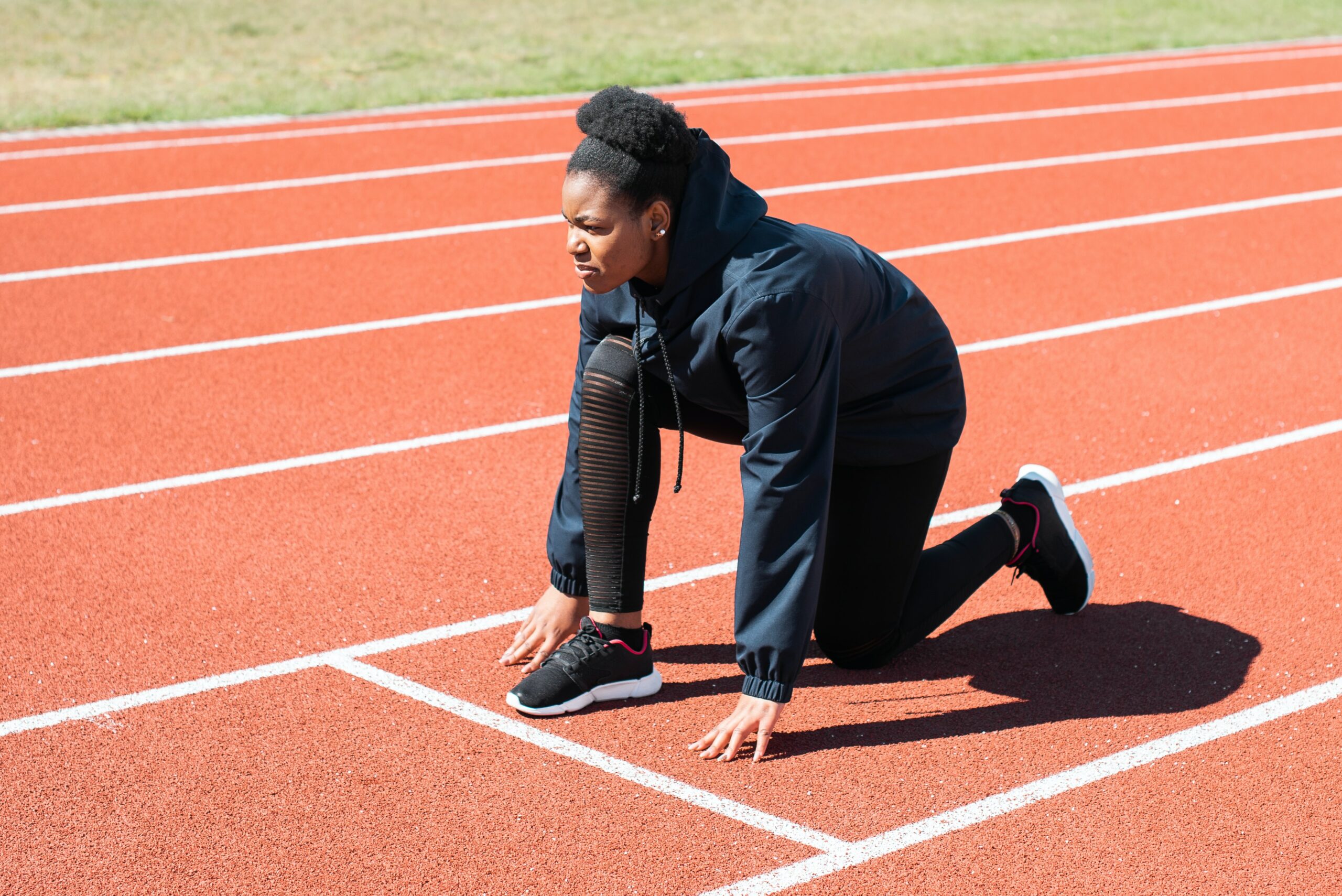Athletics provides a wide range of health benefits for both the body and the mind. We enhance health and well-being by preventing obesity and diabetes, lowering cholesterol levels, building muscular mass, and improving breathing. Improved mood, happiness, and satisfaction are just a few of the many benefits you may gain from taking care of your mental health.
Track and field hockey, relays are all examples of sports that fall under the general category of “athletics.” High-intensity aerobic exercise characterizes each of these activities. People who engage in aerobic activities report better health benefits than those who engage in other forms of physical activity. The benefits of these workouts on one’s physical and psychological well-being have been the subject of several studies.
Benefits to Health:
People’s physical health gains directly from the movement of the body. Physical activity is essential regularly to keep the body in peak operating condition. As a result, It is a sport most likely to impact one’s physical health positively. Twelve of the most scientifically proven are listed here.

The best way to avoid developing diabetes is to eat a healthy diet. The body’s insulin sensitivity improves as it engages in physical activity. The pancreas’ ability to produce these hormones is extended due to lower plasma levels of these hormones. As a result, participating in sports can assist in preventing diabetes and combating its symptoms when they occur.
Obesity prevention:
Sorting activity, such as regular engagement in sports, makes it easier for the body to use fat as a fuel source to power a specific level of physical exertion. Glycogen is conserved in the muscles in this manner. Therefore, both during and after the exercise, general metabolic activity is increased as a result (or days).
As a result of participating in this sport , the body expends more energy due to the activity. To lose weight and avoid obesity, you need to exercise regularly. On the other hand , aerobic exercise reduces fat storage and promotes a more even distribution of fat throughout the body, both of which help with weight loss.

Lowers LDL (bad) cholesterol:
Aerobic exercise increases the metabolism of plasma lipoproteins and lowers blood triglyceride levels. Reducing the level of cholesterol linked to low- and very-low-density lipoproteins improves cholesterol levels.
Strengthens the muscles’ ability to withstand stress:
An athlete’s muscles are among the most complex working organs in the body. The muscle cells’ oxidative processes and aerobic capacity are both improved as a result of this exercise. These elements encourage the body’s muscles to work more efficiently, increasing a person’s physical resistance.
Flexibility is enhanced. Muscles can be stretched and strengthened by frequent participation and ’resulting in greater flexibility and a reduced risk of muscular injury. Indeed, numerous studies have shown that this sport is one of the most acceptable ways to improve muscle flexibility.

Boosts the body’s ability to breathe:
Respiratory rate rises during athletics practice to maximize performance. As a result of becoming used to a more demanding operational environment, the lungs become more efficient.
Boosts the cardiovascular system:
It has a significant impact on health because of its results on the cardiovascular system. Can achieve improved cardiac performance by reducing energy requirements for a given amount of work through this technique. Blood pressure and heart rate rise somewhat.
Furthermore, as a result of this, the maximum cardiac output is increased. Sedentary situations can be avoided by not elevating the heart rate above normal levels. So, this is an excellent means of preventing heart disease by improving cardiovascular function.
Can prevent osteoporosis:
As a result of increased bone density, the results in preventing osteoporosis are more prominent. As a result of this treatment, the onset of this chronic ailment in old age is postponed. It’s also a good idea to practice this sport because it helps to stimulate bone rebuilding processes. Reduces the rate at which bone wears away over time.

Benefits to the mind:
Physical activity is not only good for the body, but it also has a favorable influence on the mind. Numerous studies reveal a definite link between physical activity and psychological changes such as anxiety or sadness.
There are other more ways in which physical activity can help promote mental health, and these are not limited to the treatment of mental illness or the prevention of mental illness. People who engage in regular physical activity see improvements in their mood and well-being as a direct result.
The following are the most important ones:
Instills self-confidence:
Children who participate in physical activities are better able to learn and interact with others. Children’s self-reliance and self-esteem are favorably benefited by their engagement in sports, according to research.
Increased activity:
To begin, it is clear that athletics can have a positive psychological impact. Taking up this sport is a terrific way to get more exercise. As a result of physical activity, the brain functions appropriately. If this is not the case, it is easy to notice shifts in one’s emotional state. As a result, playing athletics improves overall health and well-being by increasing physical and mental activity.
Do this to boost your self-esteem:
Participation in sports is one of the most effective techniques for boosting one’s self-esteem in studies. One of the most effective strategies of enhancing one’s self-esteem has been demonstrated to be participating in sports. Athletics helps a person become more self-aware and boost their confidence.

The following factors contribute to emotional stability:
One idea for the psychological effects of exercise is that specific neurotransmitters are impacted. Monoamines like serotonin and dopamine, in particular, appear to be directly impacted by this medication. This facilitates the ability to control brain activity and maintain a steady emotional state.
Anxiety is lessened because:
However, despite the widespread belief that physical activity can alleviate stress, this is not always the case. The practice of sport, it is said, can assist in avoiding cognitive decline and the development of disorders such as Alzheimer’s disease.
Athletes are more successful in treating generalized anxiety and basic phobias, according to studies.
Self-discipline is a virtue:
It’s also a fantastic technique to relieve tension and keep one’s behavior under control. Can improve personal self-control and emotional targeting by participating in athletics.















